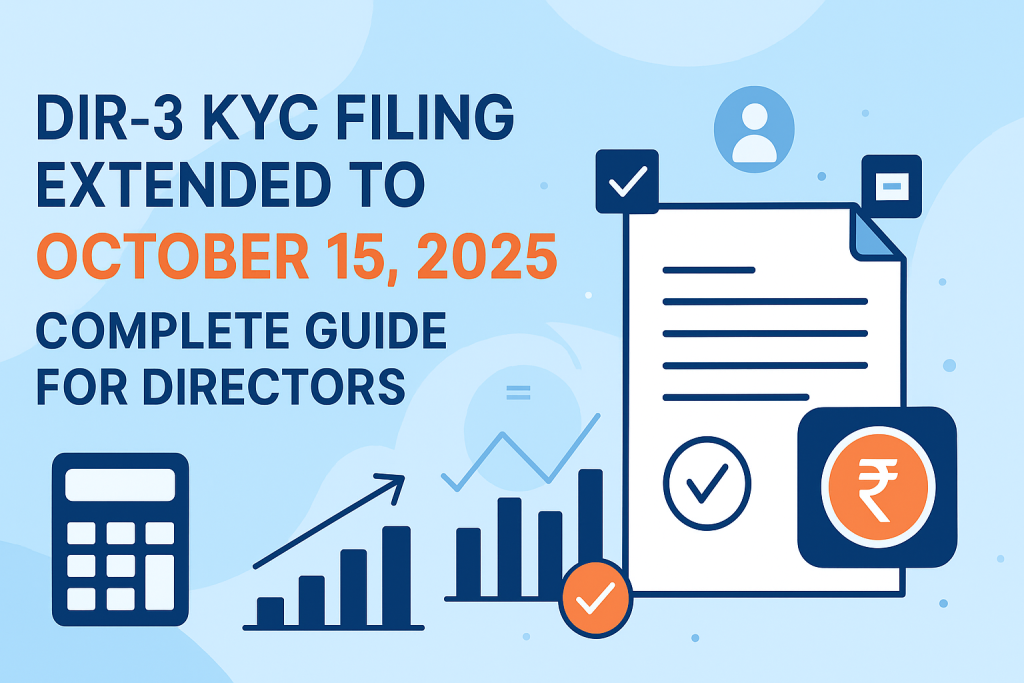DIR-3 KYC Filing Extended to October 15, 2025 – Complete Guide for Directors
The Ministry of Corporate Affairs (MCA) has officially extended the last date for filing DIR-3 KYC and DIR-3 KYC-WEB to October 15, 2025, providing directors and designated partners across India with additional time for compliance without penalty. Understanding DIR-3 KYC compliance is crucial for every company director and LLP partner aiming to keep their DIN (Director Identification Number) active and compliant with Indian statutory requirements.

What is DIR-3 KYC and Who Must File?
DIR-3 KYC is a mandatory annual compliance for directors of Indian companies who hold a DIN as of March 31 each year. Failing to file the DIR-3 KYC form results in deactivation of the DIN and a subsequent penalty.
Directors who have already undergone KYC in previous years but have no changes in their details can complete the easier DIR-3 KYC-WEB, while those updating information or filing for the first time must submit the DIR-3 KYC e-Form.
Key Changes: DIR-3 KYC Filing Extension
The previous deadline for DIR-3 KYC was September 30, 2025.
MCA’s General Circular No. 04/2025 extends the due date to October 15, 2025, with no late fees on filing.
Default after this period incurs a penalty of ₹5,000 per director and leads to automatic DIN deactivation.
Reasons for compliance
Maintains Active DIN: Non-filing leads to inactive status; only active DINs are eligible for directorships and company filings.
Prevents Regulatory Issues: Keeps director information current, protecting stakeholders from potential fraud.
Avoids Penalties: Timely compliance is cost effective and builds regulatory trust.
Step-by-Step Filing Process
- Access the MCA V3 portal.
- Identify the applicable form: Use DIR-3 KYC-WEB for routine, unchanged details, or DIR-3 KYC e-Form if updating any particulars.
- Validate phone and email via OTP for KYC-WEB; upload supporting documentation and digital signatures for the e-Form route.
- Submit and download the acknowledgment for records and compliance audits.
- Ensure unique and current email/mobile with the DIN.
Conclusion
Filing on time ensures that a director’s DIN remains active and avoids the risk of penalties or disqualification. For directors and designated partners, this compliance is more than a formality—it is a safeguard of their legal standing and professional credibility.



